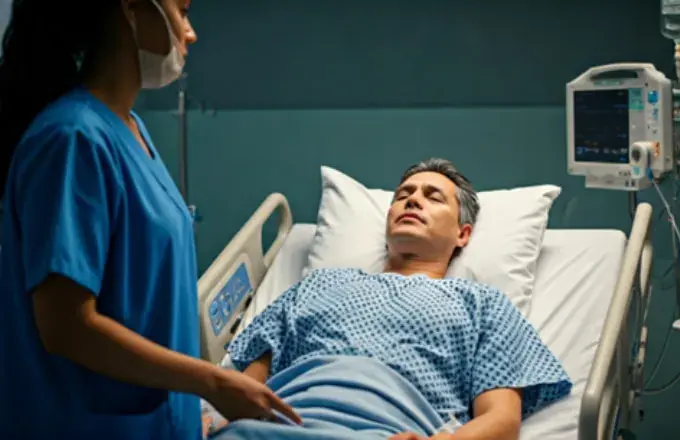Post-Surgery Recovery Tips for Scoliosis Treatment Patients
- Priorityontop Work
- Aug 1, 2025
- 4 min read
Recovering from scoliosis surgery is a journey that demands patience, perseverance, and proper guidance. Whether you're a teenager just beginning recovery or an adult navigating life post-op, understanding what happens next can drastically improve your outcomes. In this guide, we break down the essential post-surgery recovery tips tailored for scoliosis treatment patients.
Backed by research, medical insights, and patient experiences, this article will empower you to make informed decisions that promote healing, reduce complications, and improve your quality of life.

1. Understanding Scoliosis Surgery and What Comes After
What is Scoliosis Surgery?
Scoliosis surgery, commonly known as spinal fusion, is a corrective procedure that stabilizes the spine by fusing curved vertebrae into a single, straight bone. It involves rods, screws, and bone grafts that correct the curvature and prevent further progression.
Key Goals of Surgery:
Reduce spine curvature
Alleviate pain or neurological symptoms
Prevent future complications
Improve posture and balance
Immediate Post-Op Expectations
Hospital stay of 3-7 days
Pain management with IV or oral medication
Gradual mobility with physical therapy
Use of bracing or support if needed
2. The First 2 Weeks: Prioritizing Rest & Gentle Movement
Create a Healing Environment at Home
Your home should support recovery. Ensure:
A firm but comfortable mattress
Elevated toilet seats
Grabbers for reaching objects
Slip-proof rugs and non-skid footwear
Pain Management and Medication
Doctors will typically prescribe a combination of:
Opioids (for severe pain)
NSAIDs (to reduce inflammation)
Stool softeners (to counter medication side effects)
Always follow your surgeon's guidelines and avoid over-the-counter medications unless approved.
Movement Matters
While bed rest is vital, prolonged immobility can lead to complications. Incorporate:
Gentle walking (5-10 mins, a few times daily)
Deep breathing exercises to prevent pneumonia
Arm and leg stretches
Note: Avoid bending, lifting, or twisting during this phase.
3. The First 6 Weeks: Building Strength and Routine
Physical Therapy Begins
A certified physiotherapist will help with:
Gait training (how to walk properly)
Core activation techniques
Balance exercises
Rehabilitation is not just physical; it trains your body to adjust to its new spinal alignment.
Nutrition to Accelerate Healing
Bone healing depends on:
Calcium-rich foods: Dairy, green leafy veggies
Vitamin D: Sunlight, eggs, mushrooms
Protein: Fish, chicken, pulses, tofu
Avoid processed foods and excess sugar, which can increase inflammation.
4. Emotional Recovery: Addressing the Mental Toll
Post-surgery recovery is as much mental as it is physical. Many patients feel isolated, frustrated, or anxious.
Strategies to Cope:
Join online support groups or forums
Keep a recovery journal to track progress
Practice mindfulness or meditation
Talk to a therapist if needed
It’s essential to recognize that emotional healing is a vital part of holistic recovery.
5. Life After 3 Months: Resuming Normal Activities
When Can You Return to School or Work?
Desk jobs: Usually within 6-8 weeks
Physically demanding roles: 3-6 months post-op
School: As soon as mobility and pain are manageable
Always get clearance from your spine specialist before resuming responsibilities.
Resuming Physical Activity Safely
Approved activities post-clearance:
Walking & brisk walking
Stationary cycling
Swimming (usually after 3 months)
Avoid high-impact sports, contact sports, or lifting weights until you receive full medical approval.
6. Long-Term Care: Staying Healthy Post-Surgery
Monitor for Complications
Even after recovery, regular check-ups are important. Watch out for:
Persistent pain or numbness
Signs of infection (fever, discharge from incision site)
Limited mobility
Invest in Preventive Measures
Maintain a healthy weight
Practice good posture
Avoid smoking (delays bone healing)
Keep a consistent fitness regimen
7. Support Systems Make a Difference
Family & Friends
Their emotional and physical support matters. From helping with meals to driving to appointments, your recovery is smoother when surrounded by positivity.
Professional Help
Engage with:
Licensed physiotherapists
Nutritionists
Spine surgeons
They can monitor your progress and tweak your routine as required.
FAQs:
Q1. How long does it take to fully recover from scoliosis surgery?
A: Full recovery can take 6-12 months, depending on age, surgery type, and individual healing capacity.
Q2. Can I travel post-surgery?
A: Short-distance travel is usually allowed after 6-8 weeks. For long-distance or air travel, consult your doctor.
Q3. Will I need surgery again in the future?
A: Most patients do not, but it depends on spinal degeneration, fusion success, and activity level.
Q4. How do I sleep after scoliosis surgery?
A: On your back or side, with pillows for support. Avoid stomach sleeping to prevent spine strain.
Q5. Are there non-surgical ways to treat scoliosis?
A: Yes, but only for early or mild cases. Once surgery is recommended, non-surgical methods won't correct the curve.
Expert Tips from Spine Specialists
"Hydration is underrated. Staying hydrated helps with tissue repair and reduces muscle cramps." – Dr. Kiran A.
"Posture retraining should be your priority after recovery. It's the foundation of a pain-free life." – Dr. Meenal Sharma
"Never skip follow-up appointments. They help detect subtle complications before they become major." – Dr. Avinash Gupta
Final Thoughts: Your Recovery Journey Is Unique
Everyone's path to healing is different. What works for one patient may not work for another. Listen to your body, stick to your care plan, and lean on professionals for guidance.
If you're looking for Scoliosis Treatment in Delhi NCR, ensure your clinic offers holistic post-operative care, including physiotherapy, nutritional support, and mental health counseling.
Ready to Heal with the Best?
Get personalized post-surgery recovery plans, spine specialist consultations, and compassionate care for Scoliosis Treatment in Delhi. Book your appointment now and start your journey toward a straighter, pain-free spine.








Comments